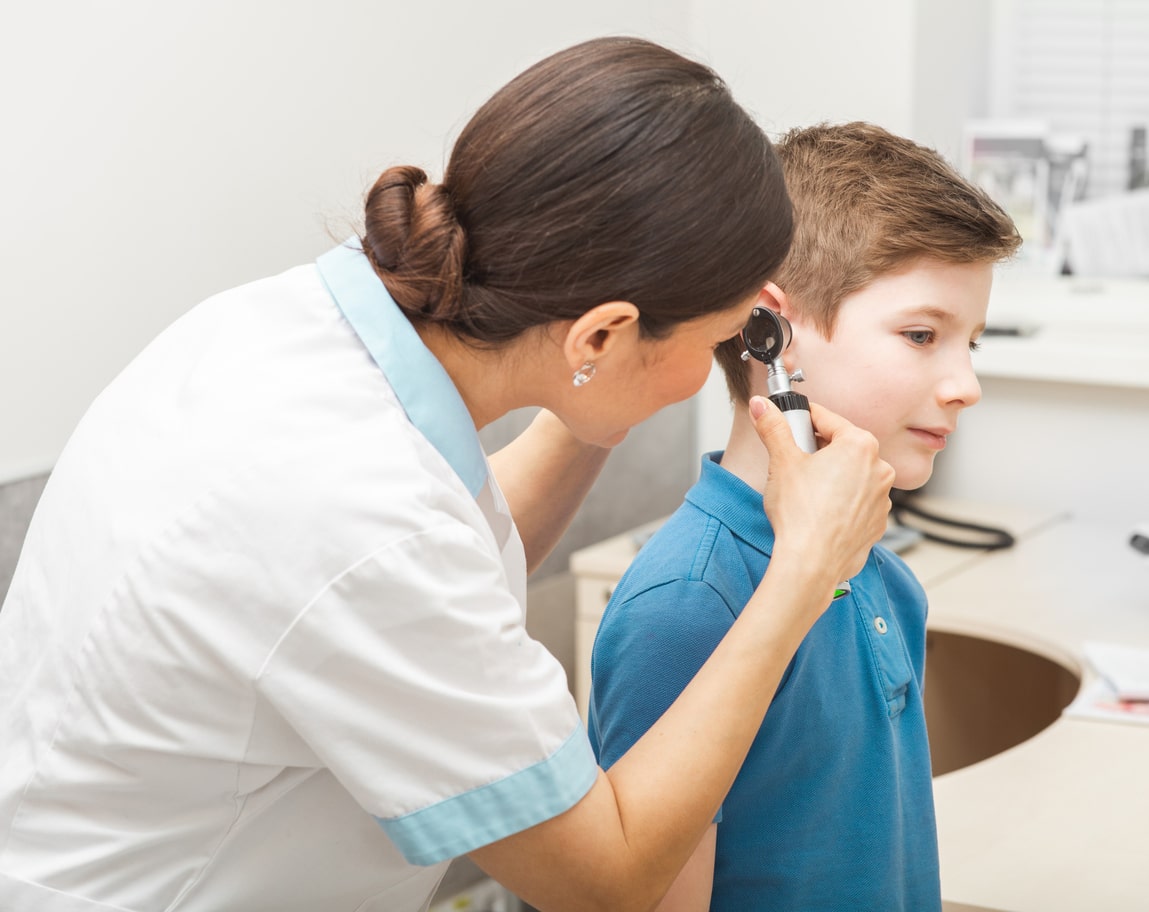Glue ear, or otitis media with effusion (OME), is a common condition arising when fluid builds up in the space behind the eardrum. When fluid builds up, usually as a result of an infection or blocked Eustachian tube, it becomes sticky, leading to symptoms including:
- Hearing loss
- Ringing in the ears (tinnitus)
- Ear pain
- A feeling of fullness in the ear
Young children are the most likely to develop glue ear, with approximately eight out of 10 children experiencing the condition before age 10. Children may exhibit additional symptoms, including changes in behavior, sleepiness, fussiness and lack of response when you call their name.
How Do Allergies Cause Glue Ear?

Allergies (allergic rhinitis) are one of the most common causes of Eustachian tube dysfunction. When you encounter an allergen you’re sensitive to, your sinuses and Eustachian tubes inflame, leading to mucus buildup and blockage. When your Eustachian tubes are blocked, they cannot effectively drain fluid from the middle ear, leading to glue ear.
How To Prevent Allergy-Induced Glue Ear
You may not be able to prevent all cases of glue ear, but treating your allergies is a great first step towards managing inflammation. A few ways you can manage allergies include:
- Allergen avoidance. Following an allergy test, set a plan to avoid the allergens you’re sensitive to where possible. For instance, if you’re sensitive to pollen, steer clear of Rock Mill Park on high-pollen days.
- Medication. Medication is an excellent symptom management option for people with no severe allergies. Medication options may include antihistamines, decongestants, nasal corticosteroids, eye drops or mast cell inhibitors.
- Immunotherapy. Immunotherapy is a long-term treatment option most often recommended for patients with severe allergies. Allergy immunotherapy works by gradually introducing increasing doses of allergens through shots or drops. Many patients see a reduction in symptom severity within two years but may need regular shots for up to five years.
In addition to managing allergies, your provider may recommend ear tubes to reduce the likelihood of ear infections. Ear tubes sit in the eardrum and help prevent fluid from building up in the middle ear. They are most often recommended for children prone to ear infections.
To learn more about managing your allergies to prevent repeated glue ear, contact ENT of Georgia North today to make an appointment with one of our specialists.